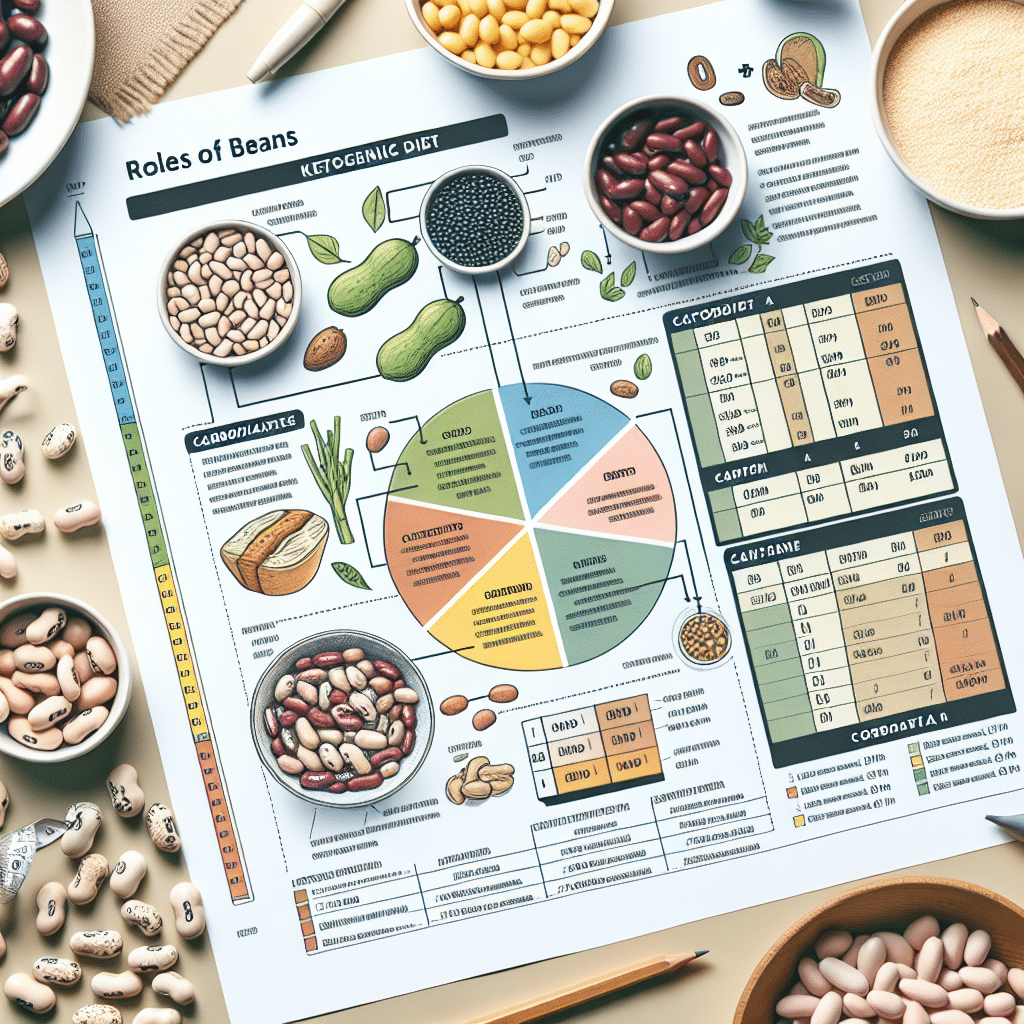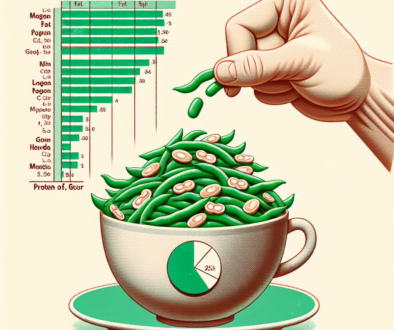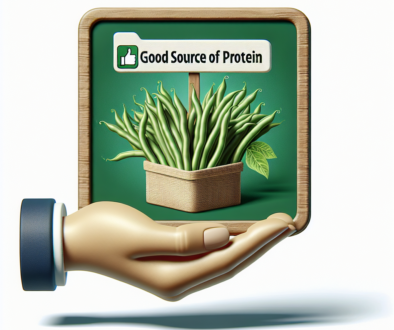The Role of Beans in Ketogenic Diets
-
Table of Contents
- Ketogenic Diets and Beans: A Comprehensive Guide
- Understanding the Ketogenic Diet
- Nutritional Profile of Beans
- Can You Eat Beans on a Ketogenic Diet?
- Types of Beans and Their Carb Counts
- Benefits of Including Beans in a Ketogenic Diet
- Challenges and Considerations
- How to Incorporate Beans into a Ketogenic Diet
- Case Studies and Research
- Conclusion: Balancing Beans and Ketosis
- ETprotein: Enhance Your Keto Diet with High-Quality Protein Products
Ketogenic Diets and Beans: A Comprehensive Guide

The ketogenic diet, or keto for short, has become a popular dietary approach for weight loss, managing diabetes, and potentially improving neurological disorders. This high-fat, moderate-protein, and low-carbohydrate diet shifts the body’s metabolism away from carbs and towards fat and ketones. However, one of the challenges people face when adopting a ketogenic diet is finding the right balance of foods that fit the strict macronutrient ratios. Beans, with their complex carbohydrates, protein, and fiber, present a unique conundrum. This article delves into the role of beans in ketogenic diets, exploring their nutritional profile, benefits, and potential drawbacks.
Understanding the Ketogenic Diet
The ketogenic diet is designed to induce a state of ketosis in the body, where fat is burned for energy instead of carbohydrates. This metabolic state is achieved by drastically reducing carbohydrate intake and replacing it with fat, leading to a reduction in blood sugar and insulin levels. The standard ketogenic diet typically consists of 70-75% fat, 20-25% protein, and 5-10% carbohydrates.
Nutritional Profile of Beans
Beans are a staple in many diets around the world and are known for their rich nutrient content. They are an excellent source of plant-based protein, complex carbohydrates, fiber, vitamins, and minerals such as iron, potassium, and magnesium. However, the carbohydrate content in beans can be a concern for those following a ketogenic diet.
Can You Eat Beans on a Ketogenic Diet?
Whether beans can be included in a ketogenic diet depends on the type of bean and the overall daily macronutrient targets. Some beans are lower in carbs and can be consumed in moderation, while others may exceed the daily carb limit and potentially disrupt ketosis. It’s essential to understand the carb content of different beans and measure portion sizes carefully.
Types of Beans and Their Carb Counts
- Black beans: High in carbs, generally not keto-friendly
- Pinto beans: Similar to black beans in carb content
- Kidney beans: Also high in carbs, typically avoided on keto
- Green beans: Lower in carbs, can be included in small amounts
- Black soybeans: Low in net carbs, considered keto-friendly
Benefits of Including Beans in a Ketogenic Diet
Despite their carb content, beans offer several health benefits that could complement a ketogenic diet:
- High in fiber, which can aid in digestion and help maintain gut health
- Rich in protein, providing a plant-based alternative to animal proteins
- Contain essential vitamins and minerals
- May help in managing blood sugar levels due to their low glycemic index
Challenges and Considerations
Including beans in a ketogenic diet requires careful planning. The challenges include:
- Staying within the daily carb limit to maintain ketosis
- Measuring portion sizes accurately
- Choosing beans with the lowest net carb content
How to Incorporate Beans into a Ketogenic Diet
For those who want to include beans in their ketogenic diet, here are some tips:
- Opt for beans with lower net carbs, such as black soybeans or green beans
- Use beans as a side dish rather than the main component of a meal
- Be mindful of portion sizes and track your daily carb intake
Case Studies and Research
Several studies have examined the impact of legumes, including beans, on health outcomes. For instance, research has shown that beans can play a role in weight management and cardiovascular health. However, there is limited research on the specific role of beans in ketogenic diets. More studies are needed to understand how beans can fit into this dietary pattern without compromising its effectiveness.
Conclusion: Balancing Beans and Ketosis
In conclusion, while beans are nutritious, their place in a ketogenic diet is limited by their carbohydrate content. Careful selection and portion control are key to including beans in a keto-friendly way. For those who can manage to incorporate beans without disrupting ketosis, they can be a valuable source of fiber, protein, and other nutrients.
ETprotein: Enhance Your Keto Diet with High-Quality Protein Products
If you’re following a ketogenic diet and looking for additional protein sources, ETprotein offers a range of high-quality protein products that can complement your dietary needs. Their organic bulk vegan protein and plant proteins are ideal for those seeking non-GMO, allergen-free options. With a neutral taste and a variety of sources like rice, pea, pumpkin seed, and mung bean protein, ETprotein caters to a diverse range of dietary preferences and requirements.
Whether you’re involved in sports nutrition, weight management, or simply looking to enhance your health and wellness, ETprotein’s products are designed to meet your protein needs without compromising your ketogenic diet. Their commitment to quality and customer satisfaction makes them a trusted supplier for individuals and businesses alike.
For more information or to sample their products, reach out to ETprotein and discover how their protein solutions can support your ketogenic lifestyle.
About ETprotein:
ETprotein, a reputable protein Chinese factory manufacturer and supplier, is renowned for producing, stocking, exporting, and delivering the highest quality organic bulk vegan protein and plant proteins. They include Organic rice protein, clear rice protein, pea protein, clear pea protein, pumpkin seed protein, sunflower seed protein, mung bean protein, etc. Their offerings, characterized by a neutral taste, non-GMO, allergen-free attributes, cater to a diverse range of industries. They serve nutraceutical, pharmaceutical, cosmeceutical, veterinary, as well as food and beverage finished product distributors, traders, and manufacturers across Europe, USA, Canada, Australia, Thailand, Japan, Korea, Brazil, and Chile, among others.
ETprotein specialization includes exporting and delivering tailor-made protein powder and finished nutritional supplements. Their extensive product range covers sectors like Food and Beverage, Sports Nutrition, Weight Management, Dietary Supplements, Health and Wellness Products, and Infant Formula, ensuring comprehensive solutions to meet all your protein needs.
As a trusted company by leading global food and beverage brands and Fortune 500 companies, ETprotein reinforces China’s reputation in the global arena. For more information or to sample their products, please contact them and email sales(at)ETprotein.com today.












